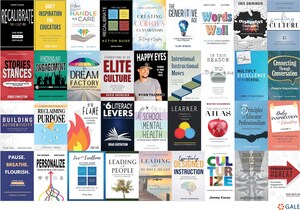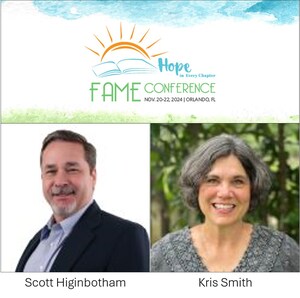Fellows to Utilize Gale's British Library Newspapers and Decolonization Primary Source Collections and Gale Digital Scholar Lab to Advance the Use of Digital Humanities Methodologies
FARMINGTON HILLS, Mich. and NEW YORK, Sept. 12, 2023 /PRNewswire/ -- Gale, part of Cengage Group, in partnership with the North American Conference on British Studies (NACBS), has awarded fellowships to five researchers. The Gale-NACBS Non-Residential Fellowships support research or teaching projects that rely on Gale Primary Sources and use digital humanities (DH) methodologies. The fellowships aim to help scholars expand the fields of British and decolonization studies for research and teaching as well as help support early career researchers develop the DH skills they need for future academic success and longevity.
Funded by Gale, each fellow receives $2,500 and access to the British Library Newspapers series and Decolonization collection for a period of six months to use with their research projects. They also have access to Gale Digital Scholar Lab (the Lab) along with a series of training sessions on its text and data mining tools so that the scholars can apply DH methodologies to their research projects.
Gale and NACBS congratulate the following candidates who were awarded the fellowships for the 2023 academic year:
Alexandrea Keith, Ph.D. candidate, Northwestern University, U.S.
Project: "[O]ur art is our lives": Black Women's Theater Organizations as Political Activism Across the Anglophone African Diaspora explores how the legacies of Black women are made visible in digital primary sources. By comparing two of the first Black women–founded theater groups in Chicago and London, — the Negro Theatre Workshop (NTW) and the Kuumba Theatre Company — the project will contribute to scholarship on Black women's global relationships with empire and colonialism.
Averill Earls, assistant professor, St. Olaf College, U.S.
Project: Earls will conduct research connected to her book, Love in the Lav: A Social Biography of Same-Sex Desire in Ireland, 1922–1970 and develop materials for a "Love & Sex in Modern Ireland" course. She will examine the ways qualitative evidence from Gale's British Library Newspapers will contextualize if, when, and how public queerness was accepted in independent Ireland.
Raymond Hyser, Ph.D. candidate, University of Texas at Austin, U.S.
Project: Hyser's dissertation, "Caribbean Ceylon: Trans-Imperial Networks, Knowledge-Making, and Plantation Coffee in the Global Tropics," uses coffee as an analytical vehicle to connect the Caribbean and South Asia in a trans-regional study that traces the inter-imperial agricultural knowledge networks that underpinned the interconnected expansion of British imperialism. His research will explore how British perceptions of empire and the tropics developed throughout the 19th century.
Tanner Ogle, Ph.D. candidate, Texas A&M University, U.S.
Project: To develop class activities for an early American history survey course, Ogle will research the influence of the Jacobite Rebellion of 1745 on British imperial policy. By centering on this rebellion as a formative moment in British imperial history, his research not only contributes to reinterpreting the ideological origins of the American Revolution but challenges the traditional timelines of the Second British Empire and the American Revolution, which have traditionally started in 1763.
Thomas Sojka, Ph.D. candidate, Boston University, U.S.
Project: For research connected to his dissertation, "Moving Beyond Mayfair: Rethinking Social Life in Interwar Britain," Sojka will look at how Britons in the 1920s and 1930s understood the contemporary leisure landscape of London, its rural environs, and beyond. By focusing on the Bright Young People—an informal group of aristocratic and upper-class individuals active during the period—this project decenters London's West End as the premier site of elite sociability and interrogates ideas of modern celebrity.
"The NACBS is thrilled to partner with Gale to provide scholars with the opportunity to incorporate new digital humanities applications into their research in British Studies," said Deborah Valenze, president at NACBS. "We look forward to learning more about the particular insights achieved by our member researchers involved in the Gale-NACBS Fellowship."
Scholars must complete the fellowships and submit a fellowship report in January 2024. Each fellowship will support the equivalent of one month's full-time work (160 hours). Awardees may dedicate four consecutive weeks of their total working hours to the fellowship project, or they may spread their work out over a more extended period.
All awardees are expected to attend the November 2023 NACBS Annual Meeting in Baltimore to present the initial findings of their research. Gale will offer additional funding to facilitate conference attendance.
"The Gale-NACBS fellowships will give scholars the opportunity to explore rare newspaper materials digitized from the British Library collection as well as primary sources from former colonial and commonwealth regions to offer fresh perspectives on the past," said Seth Cayley, vice president of global academic product at Gale. "At a time when we are seeing an increased focus on 'decolonizing the curriculum,' these projects provide opportunities to reengage with and reinterpret colonial history, surfacing a diverse range of voices that provide a more inclusive view of the past. With the help of the Lab, the fellows can enrich these stories with powerful data-analysis tools that take them down new and exciting research pathways."
Gale has been at the forefront of supporting digital scholarship for several years. Gale Digital Scholar Lab was created to address common challenges researchers and scholars face when analyzing large sets of archives. In offering fellowships, to scholars in multiple disciplines, Gale is increasing access to text and data mining tools and furthering opportunities in both research and teaching.
For more information on Gale-NACBS Non-Residential Fellowships, visit its webpage.
About Cengage Group and Gale
Cengage Group, an education technology company serving millions of learners in 165 countries, advances the way students learn through quality, digital experiences. The company currently serves the K-12, higher education, professional, library, English language teaching and workforce training markets worldwide. Gale, part of Cengage Group, provides libraries with original and curated content, as well as the modern research tools and technology that are crucial in connecting libraries to learning, and learners to libraries. For nearly 70 years, Gale has partnered with libraries around the world to empower the discovery of knowledge and insights – where, when and how people need it. Gale has 500 employees globally with its main operations in Farmington Hills, Michigan. For more information, please visit www.gale.com.
Follow Gale on:
About The North American Conference on British Studies (NACBS)
The North American Conference on British Studies (NACBS) is a scholarly society dedicated to all aspects of the study of British history, literature, society and culture. The NACBS sponsors a scholarly journal, the Journal of British Studies, online publications, an annual conference, as well as several academic prizes, graduate fellowships, and undergraduate essay contests. Founded in 1950, the NACBS was known in its early years simply as the Conference on British Studies (CBS). The conference became affiliated with the American Historical Association (AHA) in 1952 and was incorporated under the laws of the State of New York in 1965. It adopted its current name in 1980. The NACBS has six regional affiliates: the Middle Atlantic (MACBS), Midwest (MWCBS), North East (NECBS), Pacific Coast (PCCBS), Southern (SCBS), Western (WCBS). Learn more at NACBS.org.
Follow NACBS on:
Media Contact:
Kayla Siefker, Gale, part of Cengage Group
248-378-3376
[email protected]
SOURCE Gale, part of Cengage Group

WANT YOUR COMPANY'S NEWS FEATURED ON PRNEWSWIRE.COM?
Newsrooms &
Influencers
Digital Media
Outlets
Journalists
Opted In






Share this article